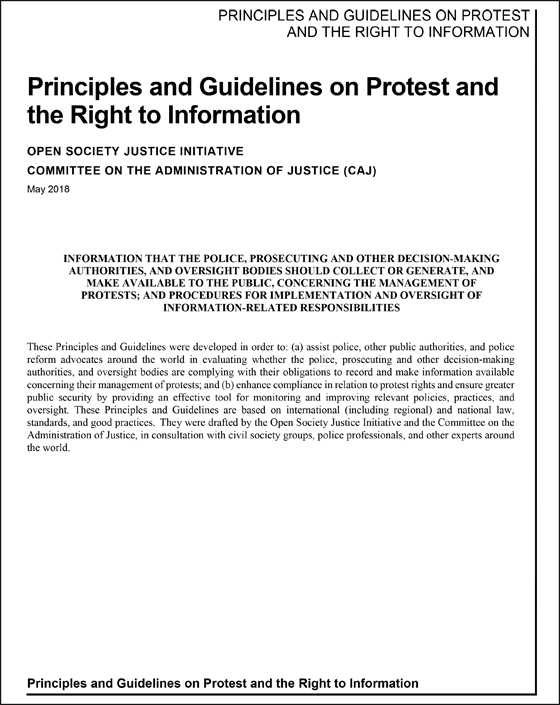Principles and Guidelines on Protest and the Right to Information
Social protests provide an important avenue for people to exercise their right to freedom of expression and their right to peaceful assembly. However, in recent years, many jurisdictions have placed new restrictions on protests, which often do not comport with international law and do not enhance public safety (or serve another legitimate purpose).
In response to this growing trend, CAJ and the Open Society Justice Init Open Society Justice Initiative (OSJI) have jointly developed new ‘Principles and Guidelines on Protest and the Right to Information’. These are intended to provide guidance on best practice to law enforcement agencies, public authorities, legislative and regulatory drafters, the courts, other oversight bodies, and civil society.
The principles have been developed in order to:
(a) Assist police, other public authorities, and police reform advocates around the world in evaluating whether the police, prosecuting and other decision-making authorities, and oversight bodies are complying with their obligations to record and make information available concerning their management of protests;
(b) Enhance compliance in relation to protest rights and ensure greater public security by providing an effective tool for monitoring and improving relevant policies, practices, and oversight. These Principles and Guidelines are based on international (including regional) and national law, standards, and good practices.
The principles were drafted by CAJ and OSJI in consultation with civil society groups, police professionals, and other experts around the world. In December, they were officially launched at an event in Washington D.C., attended by over 100 delegates.
You can download the principals via this link.
